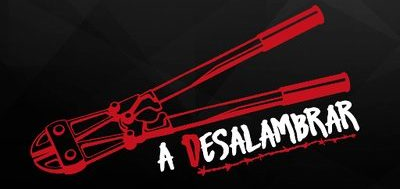 |
Basque info 22 September 2010
Please find in this email this week´s Basque Info bulletin. You will also soon receive our podcast which includes a very interesting interview with Basque political analyst and editor of the Basque pro-independence newspaper Gara.
In this issue:
· ETA shows willingness to make new commitments
· International community asks Spanish government to respond positively
· Arrested 9 Basque activists report being brutally tortured
ETA shows willingness to make new commitments
Two weeks ago ETA revealed to the public that months ago they had taken the decision not to carry out any offensive armed action. That was an unprecedented unilateral decision by ETA.
Just last Sunday on a new and longer statement ETA said that the conflict between the Basque Country and the French and Spanish states has deep political roots and that beyond partial steps a developed proposal is needed. If the conflict is to be resolved, continues ETA, a robust solution is needed which can be achieved through dialogue and negotiation and built upon commitments entered into by many different parties. At this moment ETA shows its preparation to consider, along with the international mediators, the next steps to be taken to achieve a democratic solution and the commitments ETA should undertake to help to achieve it
This statement is a response to the so-called Brussels Declaration which six months ago asked ETA to declare a ceasefire and the Spanish Government to respond in a positive manner. The declaration welcomed the conclusions of the internal debate of the Basque Pro-Independence Left which stated its its commitment to continue the struggle for self-determination solely through political and peaceful means. Among those who have signed the Brussels Declaration are Mary Robinson, Desmond Tutu, the Mandela Trust, Frederik de Klerk, Albert Reynolds, John Hume and Nuala O’Loan.
Meantime the Spanish Government and the two main Spanish political parties said that they weren’t on ceasefire and that ETA’s announcement didn’t have any importance.
On the other hand some European Union officials said ETA’s move was a positive one but remained cautious.
International community asks Spanish government to respond positively
The Friendship, a group of MEPs in favour of a democratic solution to the Basque conflict, welcomed ETA’s announcement and called on the Spanish and French governments to end all repression and to respect political and civil rights. They also called on the EU to respect the Basques’ right to self-determination and on the international community to help to create a peaceful and democratic scenario in the Basque Country.
Sinn Féin representatives Bairbre de Brún and Alex Maskey traveled to the Basque Country last week to hold press conferences as well as meetings with different political parties and social organisations and to encourage everybody to grasp the unique opportunity to achieve peace and democracy in the Basque Country.
The Spanish Government and media apparently feel extremely nervous about and uncomfortable with the international repercusions of ETA’s latest statements and are dismissing any role to be played by the international mediators.
Arrested Basque activists report being brutally tortured
Last week nine Basque pro-independence political activists were arrested by the Spanish police and held for five days incommunicado in Madrid (i.e. without access to their legal counsel or a physician of confidence). At the end of the period all nine reported being physically and psychologically tortured throughout. All nine suffered beatings (usually while muffled in foam rubber), simulated asphyxiation through infamous use of the plastic bag, forced strenuous bodily positions, sleep deprivation, threats to themselves and family.
However, the three women in addition were stripped and had their breasts fondled while they were being interrogated, insulted, beaten and threatened with rape and other fates. Two males were threatened with having a stick inserted in the anus.
Irish solicitors Niall Murphy and John Finucane visited the arrested in jail after the end of the incommunicado period and got a first-hand account. They said they felt horrified by what they heard as well as humbled by the dignified and courageous attitude of the arrested political activists.
Amnistiaren Aldeko Mugimendua, the Basque movement against repression and for amnesty for political exiles, made public in detail the torture suffered by each individual. They also released a statement in which they said that the Spanish government has made a political decision to respond to the offers of the Pro-Independence Left and of ETA with savage torture. In that, the statement went on, the Spanish Government hopes to intimidate the Basque movement but reveals its own fear of the new departures in the Basque Country.
The statement revealed that all the detainees had been repeatedly asked questions about internal political matters of the Pro-Independence Left and about how people viewed the new departure in the Basque Country.
“The Spanish Government decides to use torture,” continued the statement, “the Spanish security forces are the ones who put the torture into practice, the Spanish Audiencia Nacional (National Court) considers as proof (of guilt) statements made under torture, in order to put citizens in jail. The silence of the principal mass media and institutions makes it possible that new cases of torture occur, given that they are making of torture a hidden reality.”
Ends
